I’ve been warming up to a post or two on the power of the internal dialogue. But first, as a lead-up, here’s a little patch of last night, a mundane yet eventful exchange with my son. Strangely, it made me think about quitting drugs. So I wrote this down before I went to bed.
Isabel was gone as of this morning, off to California for the week, and I had my twin 12-year old boys to put to bed. They were tired but not exhausted. They could still think, and reason, and certainly argue (the last cognitive function to blink out for any self-respecting preteen). But more than any of that, they could feel.
As often happens when Isabel goes away, they each wanted to sleep in our bed, with me, to cuddle, or just to feel the close company of a parent who loves you completely. This has become our routine when one parent is travelling. I’d likely read for an hour or two while one boy slept beside me.
 But a problem presented itself: how were we to decide whose turn it was? Who got the first night?
But a problem presented itself: how were we to decide whose turn it was? Who got the first night?
They each had arguments. Ruben claimed that Julian always got the first night, and if that wasn’t the case, and Ruben had had the first night last time, then Julian would probably have had the last night. Which would mean that it was Ruben’s turn after all. But naturally Julian didn’t agree. He suggested they do a Rock, Paper Scissors. What could be fairer than utter randomness? But that wasn’t okay with Ruben. Ruben said — and he might be right — that Julian wins way more than half the time. The tears were already rising to his eyes and about to spill over. Julian could see that. Julian remained calm. It didn’t seem as critical to Julian, yet there was no reason for him to surrender his right to engage, because…why should he?
So I got Ruben into our room, his voice already huffy with emotion, with need, with the vertiginous sheering of his self-esteem. Soon he was under the covers, even though no ruling had been announced, 
 surrounded by his seal, his other seal, and his alpaca (who’s attained the status of a sacred object). Julian was in his bed, wide awake, waiting for the next move. His demands weren’t spent, just in pause mode. Julian could still win this one, and Ruben would be reduced to soggy rubble.
surrounded by his seal, his other seal, and his alpaca (who’s attained the status of a sacred object). Julian was in his bed, wide awake, waiting for the next move. His demands weren’t spent, just in pause mode. Julian could still win this one, and Ruben would be reduced to soggy rubble.
So I said to Julian: Maybe, just this once, without judging or recording or calculating your advantage, maybe just tonight you could let Ruben have the first night.
Why? he asked.
Simply because…because he really needs it. And you can do this. You have the strength for it. I can see it in your eyes.
But what do I get out of it? he replied, with typical 12-year old logic.
What you get out of it is just the feeling of being good, being the strong one.
I let him think about it and went back to soothe Ruben, who was still at the high-water mark. Then I went back to Julian and I asked him: Well, what’s your decision? Can you let it go…just for tonight?
In a calm voice he said, Okay.
That’s all. He gave it up. I told him I was proud of him, because he’d risen to the occasion. And a minute later I asked him how he felt. And in the calmest imaginable voice he said, I feel good.
 That’s when I recognized the moment of reckoning we often face when we quit drugs. When we let it go, when we say, I don’t need to get high tonight. What we get out of the deal is no calculable advantage, no currency exchange, but simply the feeling of being strong and good and right.
That’s when I recognized the moment of reckoning we often face when we quit drugs. When we let it go, when we say, I don’t need to get high tonight. What we get out of the deal is no calculable advantage, no currency exchange, but simply the feeling of being strong and good and right.
How precious that feeling is! I could see it in Julian’s eyes. He was no longer seeking. He’d let the need go because he could. And his reward was this unity, this glow of self-satisfaction, so different from the moment-to-moment, hour-to-hour strategizing that usually occupies his 12-year-old mind. His reward was a sense of peace, of both letting go and remaining stationary, solid, proud that he could do it, and relieved that the cost wasn’t as great as he’d imagined.
 That eye in the hurricane, that moment of grace, is the place we find ourselves in when we say, No, not tonight, I don’t need it. And then…an almost shocking sense of calm, strength, accomplishment, at the core of our being. We didn’t know it would be there until we relented, until we let the desire spin off into space and didn’t pursue it. That’s when we found ourselves to be whole, and there’s no better feeling than that.
That eye in the hurricane, that moment of grace, is the place we find ourselves in when we say, No, not tonight, I don’t need it. And then…an almost shocking sense of calm, strength, accomplishment, at the core of our being. We didn’t know it would be there until we relented, until we let the desire spin off into space and didn’t pursue it. That’s when we found ourselves to be whole, and there’s no better feeling than that.
I think Julian’s final retort was: “Why should I? Why should I give up something I don’t have to give up?”
I could see that all his sparkling 12-year old intelligence was bound up in that question. And all I could say was: “Because you can, and you know you can.”
(He also got a free back rub out of the deal.)
The expression on his face when I left the room was a soft glow of serenity. 



 sometimes angry, but certainly not intended to harm vulnerable individuals. But again, I want to avoid the political shit storm. It just doesn’t interest me as much as the content of Peterson’s proposals and their capacity to help those in need.
sometimes angry, but certainly not intended to harm vulnerable individuals. But again, I want to avoid the political shit storm. It just doesn’t interest me as much as the content of Peterson’s proposals and their capacity to help those in need. sticking to wine) and fail to follow through, there’s a dash of salt in the already-gaping wound to our self-respect. More evidence for that critical inner voice (which I’ll get to next post) and confirmation of the belief that we’ll never succeed or we’re not worth the effort (and pain) of repeated attempts.
sticking to wine) and fail to follow through, there’s a dash of salt in the already-gaping wound to our self-respect. More evidence for that critical inner voice (which I’ll get to next post) and confirmation of the belief that we’ll never succeed or we’re not worth the effort (and pain) of repeated attempts.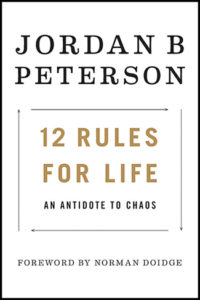 complete success. Getting your life exactly where you want it to be is possible, in fact necessary, but it might not be possible this week. So, he advises, be really practical, identify a goal that’s in reach. And make sure you stick to it. If your house is a veritable pig sty, set yourself the goal of gathering the laundry off the bedroom floor — just that — and tomorrow you’ll feel capable of tackling the sock drawer.
complete success. Getting your life exactly where you want it to be is possible, in fact necessary, but it might not be possible this week. So, he advises, be really practical, identify a goal that’s in reach. And make sure you stick to it. If your house is a veritable pig sty, set yourself the goal of gathering the laundry off the bedroom floor — just that — and tomorrow you’ll feel capable of tackling the sock drawer. once a week via live chat on the net. Jason would score a gram of heroin almost every Friday afternoon, because the weekend stretching out ahead of him felt like a wasteland of boredom and loneliness. When he got home from work Friday he’d get high. Then he’d use the rest on Saturday. There might be enough for a small hit on Sunday, but by then things were already looking pretty grim. Every Monday came the crashing depression of going without, compounded by exhaustion (not sleeping well) and savage self-recrimination. This generally went on until Wednesday morning.
once a week via live chat on the net. Jason would score a gram of heroin almost every Friday afternoon, because the weekend stretching out ahead of him felt like a wasteland of boredom and loneliness. When he got home from work Friday he’d get high. Then he’d use the rest on Saturday. There might be enough for a small hit on Sunday, but by then things were already looking pretty grim. Every Monday came the crashing depression of going without, compounded by exhaustion (not sleeping well) and savage self-recrimination. This generally went on until Wednesday morning. week, he was to make a plan to go out with a friend on Friday evening. I helped by calling him Friday morning to make sure he was on track. By Friday at dinnertime his dealer was off duty. All he had to do was to make it till then.
week, he was to make a plan to go out with a friend on Friday evening. I helped by calling him Friday morning to make sure he was on track. By Friday at dinnertime his dealer was off duty. All he had to do was to make it till then. This goal was in range. It was possible. And he succeeded. Saturday happened to be a sunny day and he spent it well. By Sunday there was no intense longing. Tomorrow would be a workday. Work organized Jason’s life. He wouldn’t feel tempted to use again until next Friday.
This goal was in range. It was possible. And he succeeded. Saturday happened to be a sunny day and he spent it well. By Sunday there was no intense longing. Tomorrow would be a workday. Work organized Jason’s life. He wouldn’t feel tempted to use again until next Friday.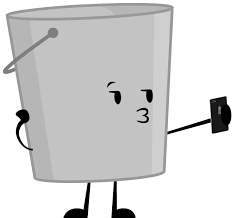
 Think of everyday concepts like, say, arguments. We tend to think of an argument as a war, with a winner and a loser, and a certain amount of damage. The war metaphor gives the concept “argument” its meaning. It’s not a matter of listening or sharing; it’s something you either win or lose. How do we conceptualize “communication”? Often as a conduit, a tube connecting speaker and listener. If you see communication as a conduit, then your main concern is sending a message down the tube and having it
Think of everyday concepts like, say, arguments. We tend to think of an argument as a war, with a winner and a loser, and a certain amount of damage. The war metaphor gives the concept “argument” its meaning. It’s not a matter of listening or sharing; it’s something you either win or lose. How do we conceptualize “communication”? Often as a conduit, a tube connecting speaker and listener. If you see communication as a conduit, then your main concern is sending a message down the tube and having it  received at the other end. A failure in communication is seen as an obstruction or break in the tube. But if our metaphor for communication were different, say a pool of water encompassing speaker and listener, then we’d view communication failures in a completely different way. Maybe as a drought.
received at the other end. A failure in communication is seen as an obstruction or break in the tube. But if our metaphor for communication were different, say a pool of water encompassing speaker and listener, then we’d view communication failures in a completely different way. Maybe as a drought. Containers are either very full or partly full or partly empty or very empty. See the point? The only other attribute that comes to mind is “leakiness”. If you suffer from anxiety rather than depression, this may strike a chord.
Containers are either very full or partly full or partly empty or very empty. See the point? The only other attribute that comes to mind is “leakiness”. If you suffer from anxiety rather than depression, this may strike a chord. So you wake up in the morning and you feel empty. You say to yourself: shit, I feel so empty. I’d really like to feel more full. So I will take a drug or a drink to fill myself up. Maybe not right now but soon. I really dislike this sense of emptiness so I will put something
So you wake up in the morning and you feel empty. You say to yourself: shit, I feel so empty. I’d really like to feel more full. So I will take a drug or a drink to fill myself up. Maybe not right now but soon. I really dislike this sense of emptiness so I will put something  into my self to fill it up. If you’ve ever been in addiction you know exactly what I mean. Yet the reason we feel “empty” in the first place — rather than, say, uninvolved, or emotional, or out of sorts — is because of the container metaphor. Empty containers need to be filled up.
into my self to fill it up. If you’ve ever been in addiction you know exactly what I mean. Yet the reason we feel “empty” in the first place — rather than, say, uninvolved, or emotional, or out of sorts — is because of the container metaphor. Empty containers need to be filled up. touch or pat yourself (on the outside). You’ll find that you are in fact very full. Of stuff. Tissue and muscles and blood and bone, or, maybe more to the point, you are full of chemicals; neurotransmitters (including opioids!) coursing around inside your body constantly. If you are a container, you’re certainly not an empty one.
touch or pat yourself (on the outside). You’ll find that you are in fact very full. Of stuff. Tissue and muscles and blood and bone, or, maybe more to the point, you are full of chemicals; neurotransmitters (including opioids!) coursing around inside your body constantly. If you are a container, you’re certainly not an empty one. their synapses. Or the mental activity that moves through them. The self is open, yet containers are (or can be) closed. So maybe we can experience the self as something like an antenna or radar dish or…I don’t know…something very uncontainerlike.
their synapses. Or the mental activity that moves through them. The self is open, yet containers are (or can be) closed. So maybe we can experience the self as something like an antenna or radar dish or…I don’t know…something very uncontainerlike. metaphor: the container becomes something more like a wide, rich, pipeline connecting “you” to everything else — an open passage.
metaphor: the container becomes something more like a wide, rich, pipeline connecting “you” to everything else — an open passage.
 hierarchies as a product of our evolution rather than the construction of an oppressive (white, male) culture. He distinguishes sex differences, which are (he claims and I certainly agree) rooted in biology and evolution, from the social construction of gender. He analyzes the personality traits associated with women and men and argues that the asymmetrical distribution of these traits (something you may have studied in Psych 101) has much to do with the gender pay gap — which is therefore not simply a result of sexism. He certainly doesn’t deny the existence of sexism, or oppression by dominant cultural forces, or the rights of transgender people. Not at all. Yet his infusion of statistically validated facts and an evolutionary perspective into the ideological battles raging (especially in the universities) about diversity, gender, social justice and so forth has alienated and angered many on the left.
hierarchies as a product of our evolution rather than the construction of an oppressive (white, male) culture. He distinguishes sex differences, which are (he claims and I certainly agree) rooted in biology and evolution, from the social construction of gender. He analyzes the personality traits associated with women and men and argues that the asymmetrical distribution of these traits (something you may have studied in Psych 101) has much to do with the gender pay gap — which is therefore not simply a result of sexism. He certainly doesn’t deny the existence of sexism, or oppression by dominant cultural forces, or the rights of transgender people. Not at all. Yet his infusion of statistically validated facts and an evolutionary perspective into the ideological battles raging (especially in the universities) about diversity, gender, social justice and so forth has alienated and angered many on the left. staunchly elevates free speech over “sensitivity” to the feelings of others. In
staunchly elevates free speech over “sensitivity” to the feelings of others. In  As a result of his stated positions, Peterson has been mobbed by what he terms “social justice warriors”– people who espouse extreme leftist views. There’s no doubt that he disagrees with many of their views and he’s angry at the insulting nature of their attacks on him. He’s literally been shouted down on more than a few campuses. Does that make him a right-winger? Not yet. The view of Peterson as a (perhaps extreme) right-winger comes from the next act in this play. People
As a result of his stated positions, Peterson has been mobbed by what he terms “social justice warriors”– people who espouse extreme leftist views. There’s no doubt that he disagrees with many of their views and he’s angry at the insulting nature of their attacks on him. He’s literally been shouted down on more than a few campuses. Does that make him a right-winger? Not yet. The view of Peterson as a (perhaps extreme) right-winger comes from the next act in this play. People 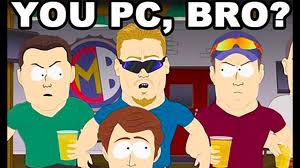 who really do identify with the right, including the far right, started to proclaim their undying loyalty to Peterson, mainly because the far left seems to hate him so much. In my view, the equation is simple. If my enemy hates you then you must be my friend. Does that make him a right-winger?
who really do identify with the right, including the far right, started to proclaim their undying loyalty to Peterson, mainly because the far left seems to hate him so much. In my view, the equation is simple. If my enemy hates you then you must be my friend. Does that make him a right-winger? too much about the fallout. I personally don’t think he enjoys being in the centre of this altercation one bit. He’s said many times in public that he’d rather people listen to, and argue with, the content of his arguments than slot him into a political ideology.
too much about the fallout. I personally don’t think he enjoys being in the centre of this altercation one bit. He’s said many times in public that he’d rather people listen to, and argue with, the content of his arguments than slot him into a political ideology. surely knows. (When Trump got elected, I wrote a post entitled “Oh Shit.” I was depressed for weeks and made no secret of it.) But that doesn’t mean I have nothing to discuss with people who see things differently. And more to the point, this blog isn’t about politics. It’s about experiential, social, psychological, and neurobiological approaches to understanding addiction. I’d be glad to chat with anyone out there about the the political eruptions surrounding Peterson’s public persona. I’m sure I can learn something. Maybe over a coffee if I’m ever in your part of the world.
surely knows. (When Trump got elected, I wrote a post entitled “Oh Shit.” I was depressed for weeks and made no secret of it.) But that doesn’t mean I have nothing to discuss with people who see things differently. And more to the point, this blog isn’t about politics. It’s about experiential, social, psychological, and neurobiological approaches to understanding addiction. I’d be glad to chat with anyone out there about the the political eruptions surrounding Peterson’s public persona. I’m sure I can learn something. Maybe over a coffee if I’m ever in your part of the world. But I think it would be a shame to ward off Peterson’s ideas as if he were some sort of vampire, simply because of the political accusations flying back and forth. I don’t agree with everything Peterson says. In my review, soon to come out, I firmly criticize him for cherry-picking scientific factoids to support dubious assumptions and for a style of argument which violates the standards of scientific discourse — namely basing one’s authority on intuitions rather than methodical arguments grounded in data. Yet some of his ideas strike me as valid, powerful, refreshing, constructive, and of particular utility for enhancing personal growth. Whether you consider yourself to be on the right or on the left, it seems there’s much of value here, and I hope you won’t throw the baby out with the bathwater.
But I think it would be a shame to ward off Peterson’s ideas as if he were some sort of vampire, simply because of the political accusations flying back and forth. I don’t agree with everything Peterson says. In my review, soon to come out, I firmly criticize him for cherry-picking scientific factoids to support dubious assumptions and for a style of argument which violates the standards of scientific discourse — namely basing one’s authority on intuitions rather than methodical arguments grounded in data. Yet some of his ideas strike me as valid, powerful, refreshing, constructive, and of particular utility for enhancing personal growth. Whether you consider yourself to be on the right or on the left, it seems there’s much of value here, and I hope you won’t throw the baby out with the bathwater.
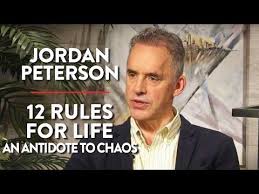 commissioned by the
commissioned by the  after publication. A professor of psychology at the University of Toronto, Peterson has been cheered and even glorified for his radical approach to self-improvement — presented in his new book and his many online lectures. What he proposes is a set of guidelines highlighting self-honesty, personal responsibility, and what we in the addiction world have long emphasized as
after publication. A professor of psychology at the University of Toronto, Peterson has been cheered and even glorified for his radical approach to self-improvement — presented in his new book and his many online lectures. What he proposes is a set of guidelines highlighting self-honesty, personal responsibility, and what we in the addiction world have long emphasized as  the bedrock of growth, empowerment — believing in your own intentions, intuitions and capacities for change. But Peterson has also been a lighting-rod for criticism. His detractors claim that he is anti-feminist, anti-LGBT, anti-social justice, and a voice
the bedrock of growth, empowerment — believing in your own intentions, intuitions and capacities for change. But Peterson has also been a lighting-rod for criticism. His detractors claim that he is anti-feminist, anti-LGBT, anti-social justice, and a voice  for the politically incorrect (shudder) alt-right. This reaction has activated a subset of Peterson followers who are indeed highly conservative or libertarian, and sometimes quite vicious in their attacks on Peterson’s critics. But we have to extract Peterson’s message from the surrounding political hubbub. In my view he’s neither left-wing nor right-wing. As I emphasize in my review, he speaks as an individual, not a political movement.
for the politically incorrect (shudder) alt-right. This reaction has activated a subset of Peterson followers who are indeed highly conservative or libertarian, and sometimes quite vicious in their attacks on Peterson’s critics. But we have to extract Peterson’s message from the surrounding political hubbub. In my view he’s neither left-wing nor right-wing. As I emphasize in my review, he speaks as an individual, not a political movement.
 internal dialogue.
internal dialogue.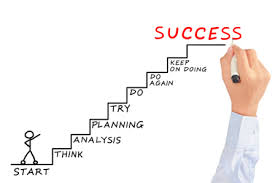 that you have to push yourself past where you are, but also provide yourself with a reasonable probability of success.
that you have to push yourself past where you are, but also provide yourself with a reasonable probability of success. suggest something to set in order, which you could set in order…voluntarily, without resentment.” In other words, with a little work, that voice can become a valuable ally.
suggest something to set in order, which you could set in order…voluntarily, without resentment.” In other words, with a little work, that voice can become a valuable ally. wisdom of a good clinical psychologist. He also ties his ideas to compelling lines of thought from philosophy (especially Nietzsche), social science, evolutionary theory, and even religion. A fascinating thinker, overall, with an especially helpful perspective for refashioning psychological approaches to addiction.
wisdom of a good clinical psychologist. He also ties his ideas to compelling lines of thought from philosophy (especially Nietzsche), social science, evolutionary theory, and even religion. A fascinating thinker, overall, with an especially helpful perspective for refashioning psychological approaches to addiction.